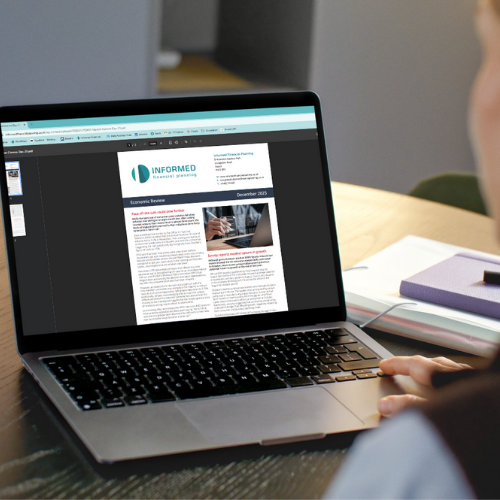There are few people that don’t know someone who has nearly fallen for a legitimate looking scam or were close to handing over a good chunk of savings following a hoax call, text or email. Perhaps you’ve fallen for one in the past too.
With technology becoming more sophisticated, there’s no doubt scams are getting harder to spot.
What most aren’t wary about, however, are scam artists operating through the post.
It might seem an antiquated way of doing things, but its easy to pull people in. Particularly if the scam letter apparently comes from HMRC.
The texts and emails from HMRC are often easy to spot; there’s even a gov.uk website dedicated to identifying them which you can find here.
However, a formal looking, HMRC headed, document looks far more daunting and far more legitimate.
This happened recently to an IFP client, who received a ‘Final Warning’ letter from HMRC for an unpaid tax bill from 2019.
Naturally, a bill for £10,000 was a bit unexpected. After calling ‘HMRC’, they were faced with a very defensive individual who refused to give any information about the reason for their bill.
Their next step was to call IFP to see whether we knew anything about this.
A quick web search of the contact number on the letter revealed all. The number had been flagged on various scam websites over 1200 times and was heavily linked to scam HMRC letters.
The letter has now been reported to the legitimate HMRC and Action Fraud – https://www.actionfraud.police.uk/
Remember, scams can come in many formats.
With any communications you receive there are a few things you can try to avoid scams:
- Never follow any links sent to you via texts or email. Always go straight to the legitimate website you use, such as your own banking app.
- Always call numbers provided on the legitimate website of the company you have been contacted by.
- Do not give personal information to anyone before verifying their credentials
- Be wary of communications that come out of the blue, such as demands for money. Genuine final warnings are rarely sent without some prior warning.
If in any doubt, don’t hand over any personal information or money.
For other handy tips to spot scams, check out Action Fraud’s website here.
We are also on hand to help if you receive any correspondence which looks less than genuine; its always best to check. The old adage still stands, its better to be safe than sorry!
If you think you need further assistance in identifying fraudulent documents or requests, contact your adviser here.
Article by: Josh Richardson, Chartered Financial Planner



